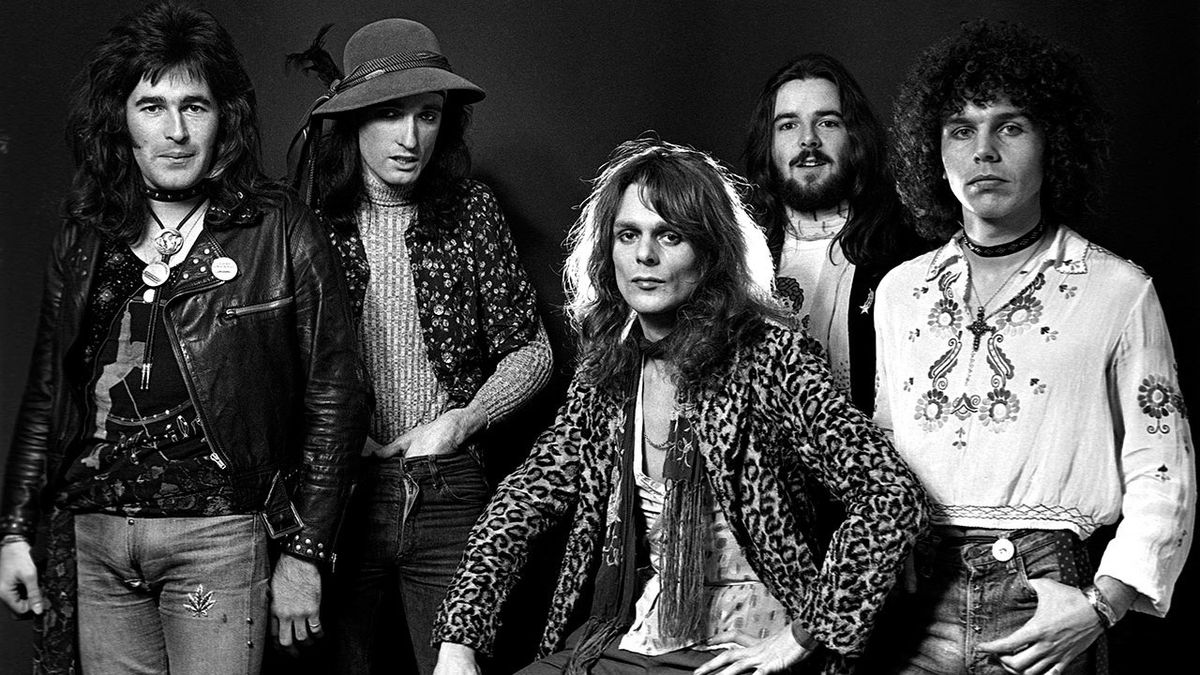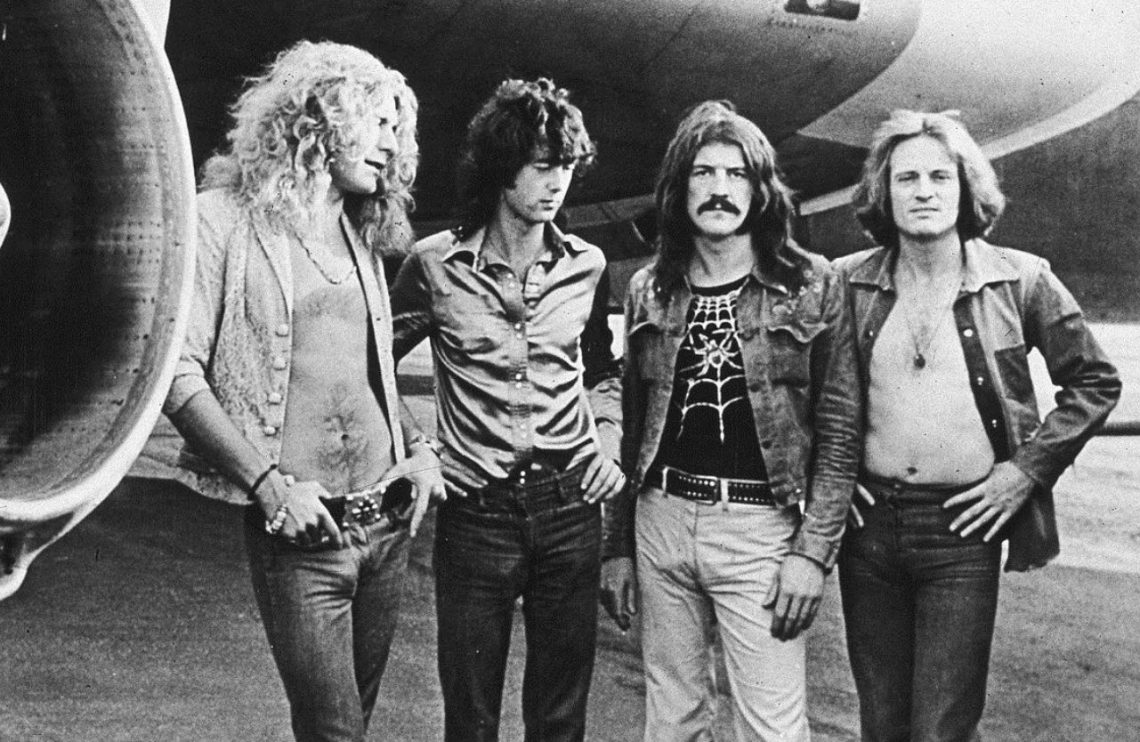70s Rock Bands: The Legends That Defined An Era
There’s something magical about the 1970s rock scene that continues to resonate with music lovers today. This was the decade when rock music truly came into its own, evolving from the raw energy of the 60s into something more refined yet equally powerful. The 70s rock bands weren’t just about making music—they were creating movements, breaking boundaries, and leaving an indelible mark on the world of music. If you’re into rock 1970s bands, you’re in for a treat because we’re diving deep into the heart of this iconic era.
Imagine a time when every chord struck was like a declaration of freedom, and every lyric was a story waiting to be told. The 70s rock scene wasn’t just about the music—it was a cultural revolution that brought people together. From the electrifying guitar riffs to the soulful vocals, these bands redefined what it meant to rock. So, whether you’re a die-hard fan or just discovering the magic of 70s rock, this article has got you covered.
Let’s take a trip back in time to explore the legends that shaped the sound of an entire generation. These rock 1970s bands weren’t just musicians—they were icons, trailblazers, and influencers who changed the course of music history. Stick around as we uncover the stories behind the music and the reasons why these bands still matter today. Trust me, this is going to be a wild ride!
Read also:Andy Griffith The Man Behind The Legend
Table of Contents
- The Rise of 70s Rock
- Iconic Rock Bands of the 70s
- The Sound of 70s Rock
- The Cultural Impact
- Key Genres and Styles
- Biographies of Legendary Bands
- The Influence on Modern Music
- Must-Hear Albums
- The Best Live Performances
- Conclusion and Legacy
The Rise of 70s Rock
The 1970s was a decade of transformation, and nowhere was this more evident than in the world of music. Rock 1970s bands emerged during a time when the world was hungry for change, and they delivered in spades. The rise of these bands wasn’t just about the music—it was about the message, the energy, and the rebellion that came with it.
This era saw the birth of some of the most iconic rock bands in history, each bringing their unique flavor to the table. From the hard-hitting riffs of Led Zeppelin to the theatrical flair of Queen, the 70s rock scene was a melting pot of creativity and innovation. It was a time when musicians weren’t afraid to experiment, push boundaries, and redefine what rock music could be.
And let’s not forget the fans. The 70s rock scene was fueled by a passionate audience that ate up every note, every lyric, and every performance. These rock 1970s bands weren’t just entertainers—they were part of a movement that spoke to the hearts and souls of millions around the world.
Iconic Rock Bands of the 70s
Top 5 Bands That Defined the Decade
When it comes to rock 1970s bands, there are a few names that stand out above the rest. These are the bands that not only defined the era but also left a lasting legacy that continues to inspire musicians today. Here’s a quick look at some of the legends:
- Led Zeppelin: With their powerful riffs and mystical lyrics, Led Zeppelin became synonymous with 70s rock. Their influence can still be heard in modern music.
- Pink Floyd: Known for their progressive sound and thought-provoking lyrics, Pink Floyd pushed the boundaries of what rock music could achieve.
- Queen: The theatrical flair and soaring vocals of Queen made them one of the most beloved rock 1970s bands of all time.
- The Rolling Stones: Still rocking strong decades later, The Rolling Stones brought a raw energy to the 70s rock scene that few could match.
- Eagles: With their harmonious vocals and storytelling lyrics, Eagles became a staple of the 70s rock landscape.
These bands weren’t just about the music—they were about the experience, the vibe, and the connection they created with their audience.
The Sound of 70s Rock
What made the sound of 70s rock so unique? It was a blend of raw energy, technical prowess, and emotional depth that set it apart from other genres. Rock 1970s bands weren’t afraid to experiment with different sounds and styles, resulting in a diverse range of music that appealed to a wide audience.
Read also:Bridget Moynahan From Runway To Screen The Journey Of A True Star
From the heavy metal riffs of Black Sabbath to the soulful ballads of Fleetwood Mac, the 70s rock scene was a tapestry of sounds that reflected the diversity of the times. It was a decade where musicians dared to be different, and the result was a rich musical landscape that continues to inspire today.
The Cultural Impact
How Rock Music Shaped the 70s
Rock 1970s bands didn’t just create music—they shaped culture. The influence of these bands extended far beyond the music itself, touching everything from fashion to politics. The 70s was a time of social change, and rock music played a significant role in driving that change forward.
From the anti-war anthems of Crosby, Stills, Nash & Young to the feminist messages of Janis Joplin, rock music became a voice for the voiceless. It was a platform for artists to express their views, challenge the status quo, and inspire others to do the same. The cultural impact of these bands is still felt today, as their music continues to resonate with new generations.
Key Genres and Styles
The 70s rock scene was incredibly diverse, encompassing a wide range of genres and styles. Here are some of the key genres that emerged during this era:
- Hard Rock: Characterized by its heavy guitar riffs and powerful vocals, hard rock became a defining sound of the 70s.
- Progressive Rock: With its complex compositions and intricate arrangements, progressive rock pushed the boundaries of what rock music could achieve.
- Soft Rock: Featuring smooth melodies and harmonious vocals, soft rock appealed to a more mainstream audience.
- Glam Rock: Known for its flashy fashion and theatrical performances, glam rock brought a new level of showmanship to the stage.
Each of these genres contributed to the rich tapestry of 70s rock, showcasing the diversity and creativity of the era.
Biographies of Legendary Bands
Led Zeppelin: The Kings of Rock
Led Zeppelin was more than just a band—they were a phenomenon. Formed in 1968, the band quickly rose to fame with their powerful riffs and mystical lyrics. Their self-titled debut album was just the beginning of a legendary career that would see them release some of the most iconic rock albums of all time.
| Name | Role | Years Active |
|---|---|---|
| Robert Plant | Vocals | 1968–1980 |
| Jimmy Page | Guitar | 1968–1980 |
| John Paul Jones | Bass, Keyboards | 1968–1980 |
| John Bonham | Drums | 1968–1980 |
With hits like “Stairway to Heaven” and “Whole Lotta Love,” Led Zeppelin became synonymous with 70s rock. Their influence can still be heard in modern music, making them one of the most enduring rock 1970s bands of all time.
The Influence on Modern Music
The legacy of rock 1970s bands can be seen and heard in modern music today. From grunge to alternative rock, the influence of these bands is undeniable. Many contemporary artists cite the 70s rock scene as a major inspiration, and it’s easy to see why.
The innovation, creativity, and passion of these bands set the stage for future generations of musicians. They showed that rock music could be more than just entertainment—it could be a form of expression, a way to connect with others, and a means of making a difference in the world.
Must-Hear Albums
If you’re looking to dive deeper into the world of rock 1970s bands, here are some must-hear albums to add to your playlist:
- “Dark Side of the Moon” by Pink Floyd: A masterpiece of progressive rock, this album is a must-listen for any music lover.
- “IV” by Led Zeppelin: Featuring iconic tracks like “Stairway to Heaven,” this album is a testament to the band’s legendary status.
- “A Night at the Opera” by Queen: With its theatrical flair and soaring vocals, this album showcases the best of what Queen had to offer.
- “Exile on Main St.” by The Rolling Stones: A raw and gritty masterpiece, this album captures the essence of 70s rock.
These albums are just the tip of the iceberg when it comes to the incredible music produced by rock 1970s bands. Each one offers a unique glimpse into the heart and soul of the era.
The Best Live Performances
One of the defining features of rock 1970s bands was their electrifying live performances. There’s something special about seeing these legends in action, and some performances stand out above the rest. Here are a few of the best:
- Queen at Live Aid (1985): Often cited as one of the greatest live performances of all time, Queen’s set at Live Aid showcased their incredible stage presence and musical talent.
- Led Zeppelin at Earl’s Court (1975): This legendary concert is often regarded as one of the greatest rock shows ever, featuring a setlist packed with hits.
- The Rolling Stones at Altamont (1969): While not without controversy, this performance marked the end of an era and highlighted the raw energy of the band.
These live performances are a testament to the power and passion of rock 1970s bands, capturing the magic of the era in a way that recordings simply can’t.
Conclusion and Legacy
In conclusion, the rock 1970s bands were more than just musicians—they were cultural icons who shaped the sound of an entire generation. Their influence can still be felt today, as new generations of musicians continue to draw inspiration from their music and legacy.
So, whether you’re a lifelong fan or just discovering the magic of 70s rock, there’s something for everyone in this rich and diverse musical landscape. Take some time to explore the albums, performances, and stories behind these legendary bands, and you’ll see why they continue to captivate audiences around the world.
And hey, don’t forget to share this article with your
Article Recommendations


:max_bytes(150000):strip_icc()/music-file-photos---the-1970s---by-chris-walter-76183390-5bc75117c9e77c0051be45f5.jpg)